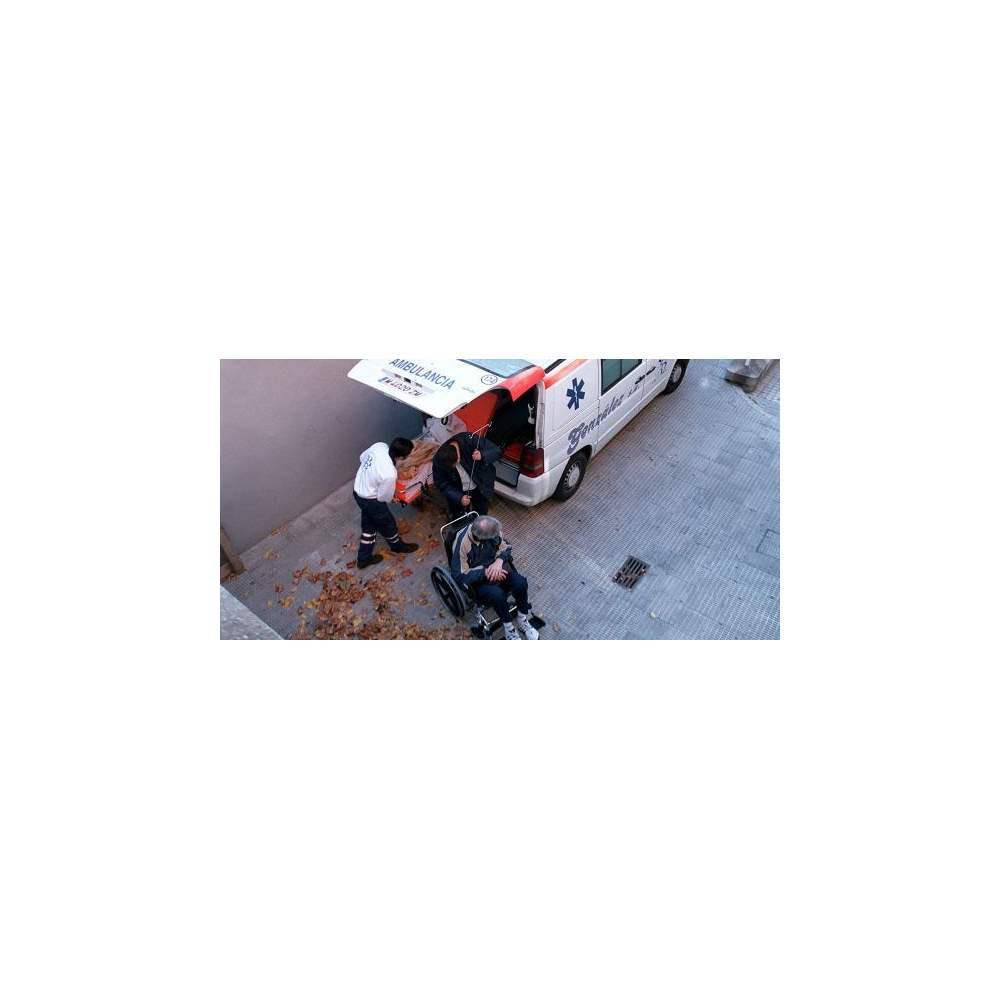LOS CRÓNICOS A PAGAR LA AMBULANCIA
The chronic to pay the ambulance
The Ministry of Health has already copay price nonemergency ambulance transport: five euros each way. It is the general rate includes the latest draft of the Government order which regulate the contribution of patients to non-emergency medical transportation. The order is expected to approve at the next Inter-Territorial Council (where are represented all regions and the Government) scheduled for Thursday, December 20 and extends the copayment for the chronically ill, oncology and on hemodialysis.
The copayment for medical transport noticed the law decree on urgent care center approved by the government last April. It divided the common portfolio of services NHS into three groups: core portfolio, supplementary and ancillary. Only the first was exempt from copay. And non-emergency medical transportation, which until now was free in all communities, was included in the supplementary portfolio, but it took an order to regulate it.
The communities and the ministry have been working in recent months in the drafting of the standard and the Government submitted the final draft on 5 December. The text, seen by this newspaper, sets the conditions to be met by patients for access to this transport and amounts contributed by each user based on their income. As a general rule, Health has established a basis for calculation of 50 euros per transfer (regardless of the actual price of the trip and the miles driven). You pay 10% of that rate, ie 5 euros per transfer. If offset is round, each way is considered a transfer, so that the total cost will be 10 euros.
The draft defines non-emergency medical transportation as "the movement of sick or injured people who are not in urgent or emergency situation and that only causes clinics are unable to move through the ordinary means of transport to hospital to receive treatment or home after receiving health care. "
There are three types of transfer:which leads to the patient from a health center to his home after hospital discharge or after being treated in the emergency room, the transfer "point" at home the patient to the health center or center to your home, and paths "papers" from the home to the center and vice versa. This third type assumes that the copayment will also apply for the chronically ill or those who need to stay in regular hemodialysis treatment or cancer and, in early drafts, were exempt.
However, in early drafts copay extended also to transfers of patients between different health centers, for example, when a patient needs a test or who can not provide care in the hospital where he is admitted. Some communities Health asked that this assumption is absolved of patient input and finally the central executive has agreed to leave it out.
As in the case of pharmaceutical copayment, fixed order stops maximum monthly contribution based on income. And regarding new drug copayment is that pensioners do not have a treatmentSpecial. For most citizens (or pensioner population with income between 18,000 and 100,000 euros) will go is 20 euros per month, the equivalent of four trips. Yours will not have to pay, although the draft order does not specify whether, as with drugs, we must pay it in advance and then returned Administration quantities exceeding this limit.
The monthly limit for patients with incomes exceeding 100,000 per year will be 60 euros. And for users with incomes below 18,000, the cap is 10 euros per month, the same as for the beneficiaries of special schemes run by Social Security officials mutual. For patients requiring periodic transfers for a period exceeding six months and with a minimum of four transfers per week the cap will be the same depending on your income, but will semi-annually instead of monthly. This clause ease, for example, the copayment for most patients who are to be subjected to dialysis, who come over twice a week to the hospital and generally for more than six months. But other groups, such as cancer patients, who may require long-term treatment, but less than six months, and whatand do not go twice a week to receive it.
Copayment exempt only those affected by toxic syndrome, people with disabilities who receive a social and economic benefit, beneficiaries of social integration income or non-contributory pension and the unemployed who have requested the service.
As in the case of drugs, are the regions which until now pay for transportation of patients and those who managed the copayment. However, while for the pharmaceutical copayment departed communities and a system of payment and copayment established for the case of ambulances, which until now were free, they have to start from scratch. The latest draft of the order he gives six months to do so after the publication of the order in the BOE.
The Interregional Council next week also approve, predictably, the order regulating the copayment for dietoterápicos, consuming products patients with metabolic disorderscomplex or enteral nutrition they need, as some cancer patients, patients undergoing gastrointestinal surgery or Alzheimer's disease.
As in the case of non-emergency transport, the latest draft, also presented by the Government last December 5, extends the copayment to patients with complex metabolic disorders in general affected by rare diseases, who need lifelong treatment and for which these products are in many cases the only power source. These patients were exempt in the first draft, but Health explained that communities have a report that concluded the impossibility of exceptions than as set forth in the decree on urgent measures law that regulates these copayments. That is, only exempted from paying these products the same groups as in other copayments.
The percentages of the contribution that corresponds to each patient based on their income vary by product type in a bunch of them, including hydrolyzed milks infants with allergies or intolerances to milk products,set the same rates as for drugs: 60% for incomes above 100,000 euros, 50% for the population with incomes of between 18,000 and 1000.000, 40% for those who earn less than 18,000, and 10% for pensioners . For another group of products, including the majority use in adults and children with metabolic problems, the contribution will be 10% for all citizens regardless of their income.
Health issued a first draft that already warned that the high price of many of these treatments would assume that if applied copay percentages similar to those of the drugs most patients would have to pay several hundred dollars a month . To reduce these amounts are set a maximum amount of contribution which in practice means that most patients will pay a euro per day for such treatment, although the amount may be less in the case that the patient can eat also by other means and the dietoterápicos involving a supplement to your diet.
The ministry is also already working in order to regulate the provision copaymentorthoprosthetic, although in this case there is not a first draft. But the work done so far by the experts who are participating in the drafting and conclusions are drawn. Among them, according to sources present at some of these meetings, which only entitled to wheelchair mobility who run out permanently.

